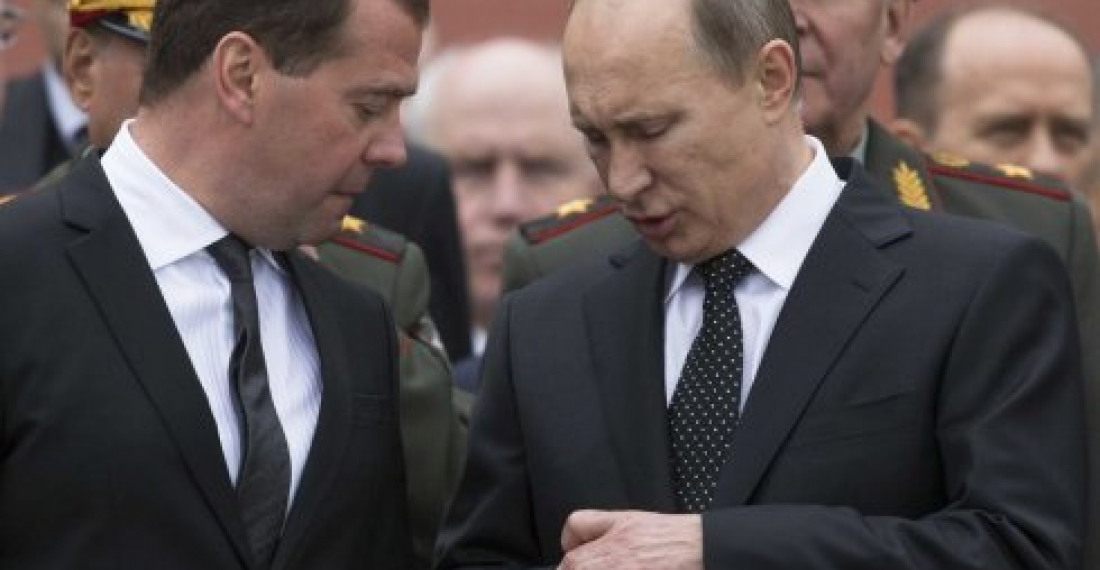"I expected that a shrewd operator like Putin would have understood that he needed to ride the wave of change, not try to stop. The fact that he did not may indicate other concerns, not least internal power struggles", writes Dennis Sammut.
The line-up of the new Russian government was announced a few days ago. Many had hoped that president Putin would use his landslide election victory to initiate important changes in the way Russia is governed, and that the choice of ministers will give a signal for a new beginning.
Instead Putin has opted for stability and continuity instead of innovation, or to put it crudely, stagnation over change. In the west many will be disappointed. But for Putin, much more crucially, many young Russians will be disappointed. The "new" Russian government looks increasingly tired, and whilst its members are more middle aged rather than octogenarians, there are few people among them who can connect with Russia's youth.
After his inauguration in early May Putin moved swiftly to re-appoint Dimitri Medvedev as prime minister. He in turn presented a list of Deja Vue persons to the president as the new cabinet within days. It was as if both wanted to make sure there was not even any speculation about possible change.
Foreign Minister Sergei Lavrov, Defence Minister Sergei Shoigu, Energy Minister Alexander Novak, Economy Minister Maxim Oreshkin, and Finance Minister Anton Siluanov, were all back. There was a tweek here or there, but the few faces in the previous cabinet, that, too generously perhaps, had been labelled as reformers, disappeared.
In his speeches Putin has been giving mixed messages. On the one hand, his favourite theme these days is Russia's new nuclear weapons, that it seems can destroy the world faster and in a more efficient way than before. Its one think mentioning this once in a speech in an appropriate manner, quite another when you keep hankering on to it.
Yet there has also been another aspect in Putin's recent speeches which praises innovation, calls for economic growth, and hint at change that is needed. It is as if Putin has two sets of speechwriters, and when they cannot agree on a common draft, they amalgamate the two without considering the contradiction.
There was no such ambiguity in the line up of the new government: stability and continuity not change and innovation, so it is clear where the government will lean in the debate.
I once asked a group of young Russians in one of the golden ring towns around Moscow what they thought of their future: their answer was quite astonishing: they saw a very bright future for Russia, but a very bleak one for themselves. They seemed resigned to this destiny. These days the children of that generation think differently. Like their parents, they may have more patience and tolerance of their government than their counterparts in the west, but still much less than their parents. They are more ready to ask questions, to demand that their government is held to account, to criticise local officials, and even to take to the streets in protest. For the moment the Tsar in the Kremlin remains a red line for many. But this is changing too.
I expected that a shrewd operator like Putin would have understood that he needed to ride the wave of change, not try to stop. The fact that he did not may indicate other concerns: not least internal power struggles that for the moment may be under the radar, but that inevitably exist as the president starts his fourth, and according to him, last term.
Source: Dennis Sammut is the Executive Director of LINKS (Dialogue, Analysis and Research). His Monday commentary is published weekly on commonspace.eu dennis@links-dar.org
The views expressed in opinion pieces and commentaries do not necessarily reflect the position of commonspace.eu or its partners
photo: President Putin and Prime Minister Medvedev (archive picture)






